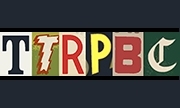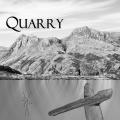Riddle 8 - Gaming
What might you take from this book as regards gaming? Is there in fact already a game or scenario which is essentially the same? What games / game engines are there which allow for the underlying terrain to be constantly changing, so that optimal routes are never the same twice?

 Help offset server costs by donating. This is totally optional. Any overages will go to library fines or new books.
Help offset server costs by donating. This is totally optional. Any overages will go to library fines or new books.

Comments
Games like The One Ring and Ryuutama make travel a significant part of the game, but mainly as a resource-depletion activity. Difficult travel can leave people tired or injured, putting them at a disadvantage at the destination. Travel may also throw up hazards on the way that can lead to problems.
Changing routes can be handled by skill rolls, to determine either ease or speed of travel. This novel has sufficiently limited scope (both time and space) to make approximate tide tables worthwhile, if you want to go to that much detail.
The other part of the novel is the investigation into the hidden plans of Dollman and the rest, uncovering then thwarting the invasion plan. There are enough games out there that handle investigations.
Personally, I rather like some exposition to paint a picture. Brief - like a short paragraph.
Specific terrain obstacles are sometimes given in the form of encounter tables, but in this case the encounters are natural features, and again it’s usually the effect that’s highlighted. (“You step in a big hole. Make an athletics roll or suffer a twisted ankle for 1D4 hit points.”) This method gives a bit of character to the terrain, but still ultimately does little to convey the feeling of the Emmyn Muil.
Ultimately, emulating something like getting lost in a maze like landscape is a fraught exercise. It risks getting boring quickly (“another dead end, so you turn back”) Computer games do a much better job of handling these things because they’re faster to resolve and basically treated like dungeon spaces with creature fights and hidden treasures or traps to liven things. And in those settings, exploring the landscape is actually the goal. In RPing, gamers tend to ‘want to get on with the plot’ than do this kind of exploring, which feels more like a board game experience.
Based on my brief research into so-called OSR style sandbox gaming, it seems that a lot of designers suggest to put something interesting (ie relevant to character advancement through combat) in every hex. I prefer to have the players already know where they are going in general, and then set out the details and hazards of going, rather than encourage purposeless wandering because the GM will ensure that something useful happens.
I liked that in this book that didn't happen - the characters themselves produced the interest, and they had to find it in areas they knew a bit, but not a lot.
But in general I much prefer some set-piece encounters in specific places to highlight the geography of the route and the kinds of people or creatures encountered thereupon.
Good gaming relies on the players making interesting decisions. For RPGs, I'd go further and say that good RPG gaming relies on the players making interesting decisions that are based in the character.
With travel, its difficult to make the decisions "legible" to the players. No-one decides to get lost while travelling, and it's difficult to give the players enough information for them to make a sensible, character-based decision.
Some of the solutions, such as events during travel or the montage approach of "13th Age", are ways to bring those character moments into play.
Getting lost is not a decision, but what players do once their PC lost is up to them. There's lots of evidence that people people make foolish decisions when they are e.g. lost, so why should players expect or be expected to make sensible decisions?
Getting lost in real life is one thing, getting lost in an RPG is another. What choices to the players have if they get lost, and do all those possible solutions result in good gaming?
1. Pick one of these paths and keep going - presumably if they pick the right path, they get to their destination. Was it interesting to get lost to begin with? If they pick the wrong path, what is the result? Still lost?
2. They can hunker down and wait for rescue, possibly a very good choice in real life, but rather boring in a game? If could lead to an interesting encounter, but how long to wait? This is where a random encounter might come in useful, or even better a pre-planned one.
3. Send up a flare, hoping for rescue - variant on the above. Maybe attracts a different kind of encounter than just waiting. If the encounter is with, say, a wolf, will it lead to rescue? If not.... still lost!
Even if you make getting lost interesting, you still have to deal with the consequences of the PCs getting lost. What are the consequences?
1. Incurred extra time to get to their destination. Will this seriously affect the game? Were they rushing to rescue someone who is now dead because they never arrived? Is the main objective of their travel still interesting?
2. Extra fatigue or exposure. In an abstract travel system, getting lost might be one of the rolled travel events, it that event might be described similarly to this: "The party gets lost. Every character loses one fatigue level from all the extra tramping about, then having to hurry later to make up for lost time." There's no actual choice there, just attrition of character abilities.
That's why I like the set encounter approach. For example, I might pre-plan in my notes: "If the characters fail a navigation check on this leg of the journey, they get lost. Describe the unique wilderness area they get lost in. They encounter Milkin the gnome, who will either help them or hinder them depending on how he's treated by the party." (more details and stat block follow).
Imagine Pippin and Merry getting lost in Fangorn. That was interesting because they met Treebeard, and sure, they missed out on the siege of the Hornburg, but they initiated the siege of Isengard!
But imagine if they got lost and met a pack of wolves at random. Or got lost and just kept picking the wrong path. Or got lost and found a stash of healing herbs. Those are not interesting, or at least much less interesting, outcomes.
@Apocryphal The set encounter approach is exactly what I mean. I don't mean the GM should get lost with the players.
Milkin here is transparently a thinly-veiled Melek or Moloch hence the dichotomy between bestowing kingly gifts or cursing them
That aside, my long-ago memory of random encounters while travelling was that they served mainly to boost levels of swag and potentially therefore raise levels - not a real threat and more of an occasional reward. Quite different from the GM-steered encounters where the purpose is more "here's a tricky task for a fine company of adventurers like yourselves".
I think I could run it in any of my own games if I took the time to prep it properly - using tide tables to fill and empty a set of contour maps showing the same area at different times as well as a weather and wind direction table based on prevailing winds and weather. Time tracking would be vital. Or I could wing it based on my understanding of the terrain, time, and tide. My players would trust me. I would have to have some player characters with appropriate skill sets... That would be imperative. Trusting only to luck - even mechanical luck - would not get you very far in these situations.
Yes that's the kind of thing I was wondering about - whether it could work in an RPG or (as @BarnerCobblewood suggests) might be better in a tabletop mode. But the basic idea of having terrain that isn't uniformly fixed, and hence the need to adapt movement to the particular moment is a fascinating one (I think).
"Sensible" is probably the wrong word. "Believable" or "justifiable" might be better. I'm trying to express the notion that the character, actually living in the world, knows much more than the player does about any given situation. For the player to make in-character decisions, the player needs to know enough about the character and the situation to be able to say what the character would do. That could be the rational best choice ("Fred's broken leg will only slow us down, we have to leave him here"), or it could be a dramatic choice ("we leave no-one behind!"), or something that arises from baser drives in the character. ("We should go on, but my character is cold, tired, and hungry. They don't have the will to keep walking, but will go to that farmhouse, even if it means they'll be captured.")
We've got good (or at least, familiar) methods of making those considerations well-known to players in other contexts (e.g. combat), or at least having good proxies for them. We don't have those methods for travel situations.
Isn't that similar to other situations with fixed times ("the ritual will be completed at midnight!"), or travel with timetables ("there are only two trains per day to the next city")?
If time and location are important to the stories, they should be prominent in the game and its mechanics. A bespoke game based on this book would have detailed mechanics for navigation, travel speed, and endurance, and just about nothing for combat.
Not codified, but certainly any good GM can extend the mechanics of the game into unforseen circumstances. My games are designed to do this, because that flexibility was a major design criteria, but I am confidant I could do so with any set of game mechanics I understood well.
@NeilNjae Oh I get it now. Thanks. I think these kinds of issues are part of what I think of as "table-culture." I mean they are obvious within a community that plays games together. So not rules / mechanics but customs and conventions, which vary from table to table. I consider that ensuring that the players make believable decisions for their PCs is the table's communal responsibility, and is accomplished through discussion.
Exactly! This is a 'Table Level" part of role playing gaming.